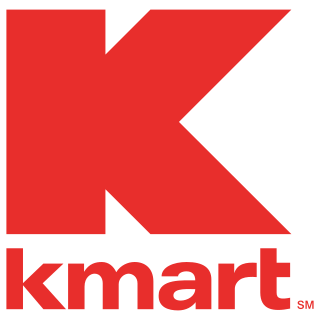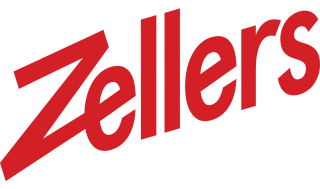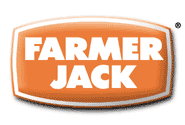Related Research Articles

Kmart, formerly legally registered as Kmart Corporation, now operated by Transformco, is a department store chain, and a current online retailer in the United States and its territories. It operates four remaining Kmart big-box department stores — three in the US Virgin Islands and one in Tamuning, Guam. The company closed its last big-box store in the mainland United States in 2024. A smaller location remains open in the former Garden Shop of its Kendale Lakes, Florida store, while the adjoining big box building is occupied by another retail chain that has leased the space.

Zellers was a Canadian discount store chain founded by Walter P. Zeller in 1931. It was acquired by the Hudson's Bay Company (HBC) in 1978, and after a series of acquisitions and expansions, peaked with 350 locations in 1999. However, fierce competition and an inability to adapt during the early stages of the retail apocalypse resulted in Zellers losing significant ground in the 2000s.

Woolco was an American-based discount retail chain. It was founded in 1962 in Columbus, Ohio, by the F. W. Woolworth Company. It was a full-line discount department store unlike the five-and-dime Woolworth stores which operated at the time. At its peak, Woolco had hundreds of stores in the US, as well as in Canada and the United Kingdom. While the American stores were closed in 1983, the chain remained active in Canada until it was sold in 1994 to rival Walmart, which was looking to enter the Canadian market. All of the former UK Woolco stores were sold by Kingfisher, which had bought the UK Woolworth business, to Gateway which subsequently sold them to Asda.

JCPenney is an American department store chain with 656 stores across 49 U.S. states and Puerto Rico. It is managed as part of the Catalyst Brands portfolio alongside other apparel retailers such as Brooks Brothers and Eddie Bauer.
Discount stores offer a retail format in which products are sold at prices that are in principle lower than an actual or supposed "full retail price". Discounters rely on bulk purchasing and efficient distribution to keep down costs.

Price Chopper Supermarkets is an American supermarket chain owned by Northeast Grocery, headquartered in Schenectady, New York. The chain opened its first supermarkets in New York's Capital District in 1932, and changed its name from Central Market to Price Chopper in 1973. It operates 129 stores in six states: Upstate New York, Vermont, Connecticut, Massachusetts, New Hampshire, and Pennsylvania. It operates stores under the Price Chopper, Market Bistro, and Market 32 banners.
Walden Book Company, Inc., doing business as Waldenbooks, was an American shopping mall-based bookstore chain and a subsidiary of Borders. The chain also ran a video game and software chain under the name Waldensoftware, as well as a children's educational toy chain under Walden Kids. In 2011, the chain was liquidated in bankruptcy.

OfficeMax is an American office supplies retailer founded in 1988. As an independent chain, it was the third-largest office supply retailer in the United States. Following a 2013 merger, it is currently a brand and subsidiary of Office Depot.

Caldor, Inc. was a discount department store chain founded in 1951 by husband and wife Carl and Dorothy Bennett. Referred to by many as "the Bloomingdale's of discounting," Caldor grew from a second story "Walk-Up-&-Save" operation in Port Chester, New York, into a regional retailing giant. Its stores were earning over $1 billion in sales by the time Carl Bennett retired in 1985, by which time Caldor was a subsidiary of Associated Dry Goods.

Zayre was a chain of discount stores that operated in the eastern half of the United States from 1956 to 1990. The company's headquarters were in Framingham, Massachusetts. In October 1988, Zayre's parent company, Zayre Corp., sold the stores to the competing Ames Department Stores, Inc. chain. In June 1989, Zayre Corp. merged with one of its subsidiaries, The TJX Companies, parent company of T.J. Maxx, which still exists today. A number of stores retained the Zayre name until 1990, by which time all stores were either closed or converted into Ames stores.

Farmer Jack was a supermarket chain based in Detroit, Michigan. At its peak, it operated more than 100 stores, primarily in metropolitan Detroit. There was a store in Evart, MI in the late 70s/early 80s. In its final years, the chain operated as the Midwest subsidiary of the New Jersey–based A&P Corporation. A&P closed the Farmer Jack chain on July 7, 2007.

The TJX Companies, Inc. is an American multinational off-price department store corporation, headquartered in Framingham, Massachusetts. It was formed as a subsidiary of Zayre Corp. in 1987, and became the legal successor to Zayre Corp. following a company reorganization in 1989.
Miracle Mart was a chain of discount department stores with locations in Ontario and Quebec, Canada based in Saint-Laurent, Quebec. The chain was renamed to simply M in the mid-1980s.

Steinberg's was a large family-owned Canadian grocery store chain that mainly operated in the province of Quebec and later Ontario. In addition to its flagship supermarket chain, the company operated several subsidiaries across the country. The company went bankrupt in 1992, three years after being sold to private interests, after 75 years in business.

Grand Union Supermarkets, later known as Grand Union Family Markets and often referred to simply as Grand Union, is an American chain of grocery stores that does business in upstate New York and Vermont, and used to do business throughout most of the northeastern United States. It operated stores in other areas of the country, including the midwestern and southeastern states, and internationally in the Caribbean and Canada. The company was founded and headquartered in Scranton, Pennsylvania, and moved to Brooklyn, New York, in the early 20th century. Grand Union moved again to Elmwood Park, New Jersey, and finally to Wayne, New Jersey, before the company was forced into Chapter 7 bankruptcy in 2001 and sold to C&S Wholesale Grocers.
Two Guys is a former discount store chain founded in 1946 by brothers Herbert and Sidney Hubschman in Harrison, New Jersey, originally selling major appliances such as televisions. The chain acquired the manufacturers of the Vornado appliance brand in 1959, and spread beyond the New York City metropolitan area to more than 100 locations in upstate New York, eastern Pennsylvania, New Jersey, Connecticut, Massachusetts, Maryland, Virginia, and as far as California. The company's financial success started to decline in the late 1970s, and it was defunct by 1982.

FedMart was a chain of discount department stores started by Sol Price, who later founded Price Club. Originally a discount department store open to government employees paying a $2 per family membership fee, FedMart earned four times more than its investors had projected in its first year. Over the next 20 years, FedMart grew to include 45 stores, mostly in California, and the Southwest in a chain that generated over $300 million in annual sales. The business expanded to several states in the Southwest United States. Many stores were previous White Front or Two Guys locations. Price later sold two-thirds of the chain to Hugo Mann, a German retail chain, in 1975 and was forced out of his leadership position the following year. FedMart went out of business in 1982.
Lechters Housewares was a national chain of kitchen-supply stores in the United States, based in Harrison, New Jersey. Many of its stores were in malls. Its store-brand products used the name Cooks Club. It owned the Costless Home Store and Famous Brands Housewares Outlet chains.
The Lane Drug Company of Ohio, was a discount drugstore chain in the United States that was originally based in Toledo, Ohio. On 10 April 1989, the chain was acquired by Rite Aid Corporation of Harrisburg, Pennsylvania, and operated as a division of Rite Aid until late 2024, when Rite Aid closed all Ohio locations after filing for Chapter 11 bankruptcy protection in October, 2023.
References
- ↑ "COMPANY NEWS; PRICE ACQUIRES TSS-SEEDMAN". The New York Times . Section D. March 17, 1987. p. 4. Retrieved September 13, 2022.
- 1 2 3 Liebeck, Laura (November 23, 1987). "Former Caldor exec heads TSS-Seedman's - Julius Kasinitz". Discount Store News.
- 1 2 Liebeck, Laura (1989-11-13). "TSS is slated to expire by mid-1990 - TSS-Seedman's Inc., discount store chain". Discount Store News. Archived from the original on 2009-12-05. Retrieved 2008-02-24.
- ↑ "TSS withdraws its 1st public offering; asking price too high". Discount Store News. 1984-02-06. Archived from the original on 2012-07-08.
- ↑ "Price Co. Plans to Buy 81% of a Store Chain". Wall Street Journal . 1987-03-17. pp. D4.
- ↑ "TSS contracts to stay alive on L.I - discount store chain on Long Island - Regional Analysis: Middle Atlantic - company profile". Discount Store News. 1989-05-29. Archived from the original on 2009-11-21. Retrieved 2008-02-24.